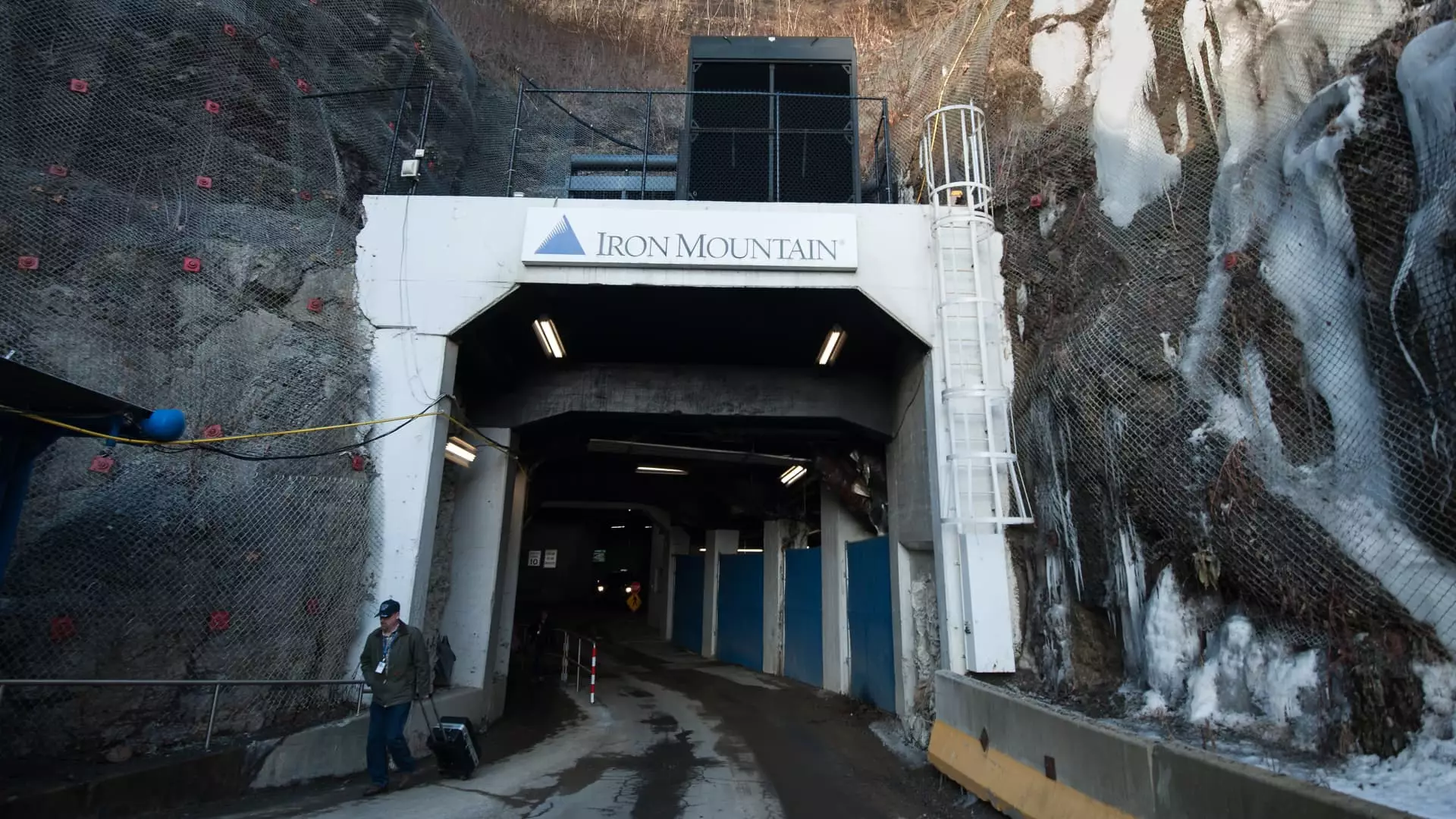The intersection of innovation, government operations, and private enterprise has seldom been as visible as during Elon Musk’s recent visit to the Oval Office. During this engagement, Musk voiced his discontent with what he termed the inefficiency of governmental procedures, specifically highlighting the role of the Department of Government Efficiency (DOGE), which he is spearheading. His remarks regarding a limestone mine managed by Iron Mountain, a company engaged in document storage and management for federal agencies, have sent ripples through the business and government sectors alike.
Musk’s rhetoric included vivid imagery of the mine operating as a repository for decades-old retirement paperwork. Describing it as a bizarre “time warp” from the 1950s, Musk not only made an eye-catching metaphor but also presented a foundational critique of how the labyrinths of bureaucracy can hinder progress. “Doesn’t that sound crazy?” he provocatively asked, indicating his belief that such outdated infrastructure impedes the efficiency required for processing federal employee retirements.
By illustrating the mine’s elevator speed as instrumental in paperwork processing rates, Musk underscored a real issue: the potential hindrance posed by antiquated logistics on timely governmental operations. Such statements not only disrupt the status quo but also reflect a broader need for reform in bureaucratic processes, which often fail to keep pace with technological advancements.
The Fallout: Iron Mountain’s Reaction and the Stock Market Response
Following Musk’s disparagement of Iron Mountain’s operations, the company’s stock took a significant hit, declining by over 10% in a single week. The abrupt drop in share prices was indicative of investor concerns regarding the sustainability of government contracts deemed inefficient. Iron Mountain CEO Bill Meaney attempted to pivot this criticism into a growth opportunity, emphasizing the alignment of his company’s digital transformation services with the government’s pursuit of greater efficiency. This juxtaposition highlights the inherent tension between private sector innovation and public sector rigidity.
However, the swift market reaction begs the question: how resilient are companies that rely heavily on government contracts? While Meaney’s insistence on opportunity in the face of adversity may hold truth, it points toward the fundamental fragility of businesses with such dependencies. Analysts from Wells Fargo contended that the stock’s reaction was an “overreaction,” arguing that Iron Mountain’s broader portfolio—including data centers—lessens the potential negative impact of losing a high-profile governmental client.
The Pennsylvania mine, where federal paperwork is processed over 200 feet underground, is touted as providing “unbeatable” security capabilities. This angle raises interesting considerations around modern information security in the era of digital transformation. As governmental entities increasingly adopt digital solutions, what does it mean for a business centered on physical document storage? Musk’s critique of outdated practices may paradoxically shine a light on the operational inadequacies Iron Mountain faces as the government seeks a more efficient path forward.
The interesting reality emerges that while Musk criticized the traditional methods employed by the federal government, it is these methods that Iron Mountain has historically capitalized on. The company’s ability to transition successfully into a more digitized and agile marketplace will determine its resilience against a backdrop of governmental scrutiny and potential cutbacks on perceived inefficiencies.
Reforming the Federal Landscape: Implications for Future Partnerships
Musk’s involvement in instigating a movement towards government efficiency could reshape future partnerships between the public and private sectors. As he delves into the complexities of federal spending and bureaucracy, there is a distinction to be made between what constitutes necessary reforms versus mere budget cuts. The scrutiny that figures such as Musk bring to the table could encourage clear-eyed assessments of legacy contracts—both maintaining security and pushing for modern efficiencies.
The implications of this ongoing discourse extend beyond Iron Mountain and the Department of Government Efficiency; they potentially apply across various sectors engaged with federal agencies. Companies must now prepare for an environment where government partnerships may favor innovative, digital solutions over traditional methodologies. As policymakers aim for streamlined operations, private firms with the ability to innovate and adapt may find themselves at the forefront of a new era in government efficiency.
While Musk’s critique may have sent shockwaves through the market and exposed vulnerabilities in existing practices, it has also highlighted the opportunity for growth, improvement, and collaboration in one of the most pivotal sectors—public service. Whether these efforts will indeed translate to a more efficient government remains to be seen, but the dialogue Musk initiated is certainly invaluable in shaping future strategies.

